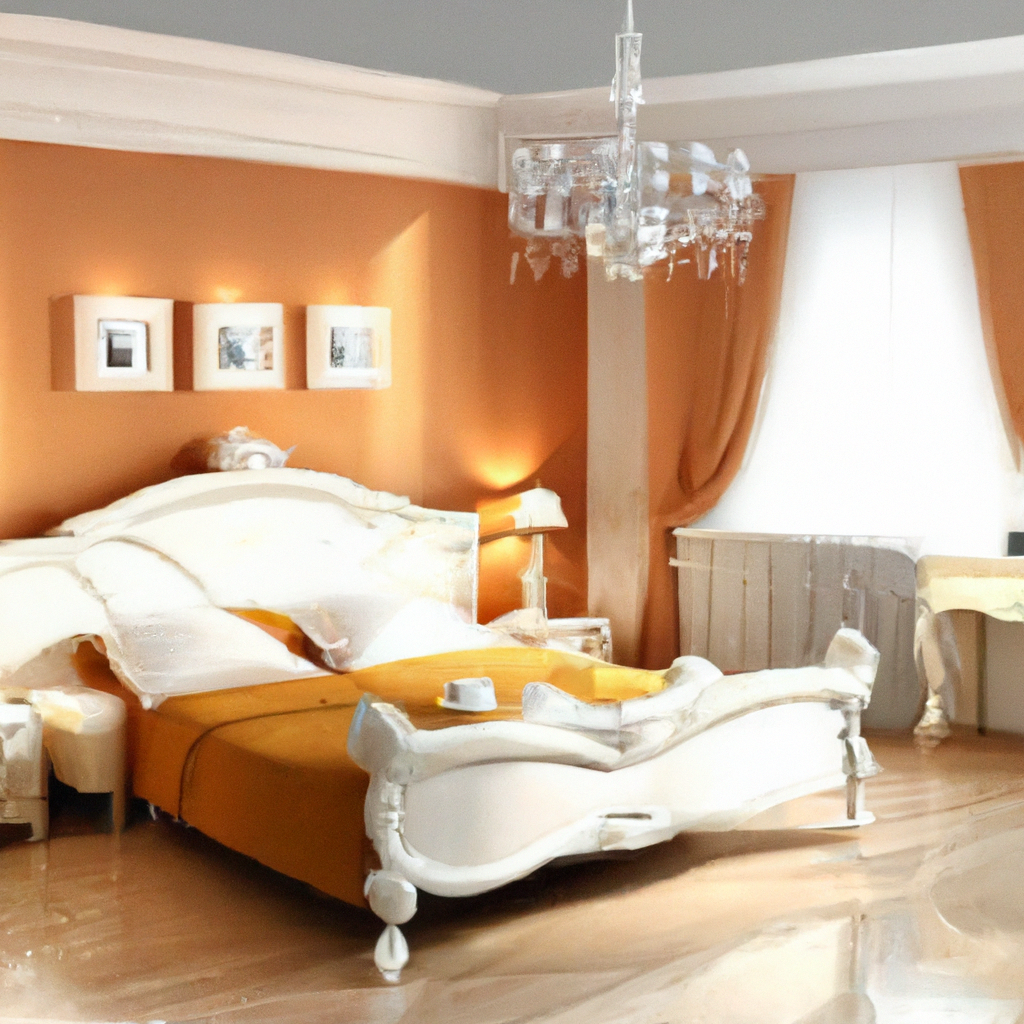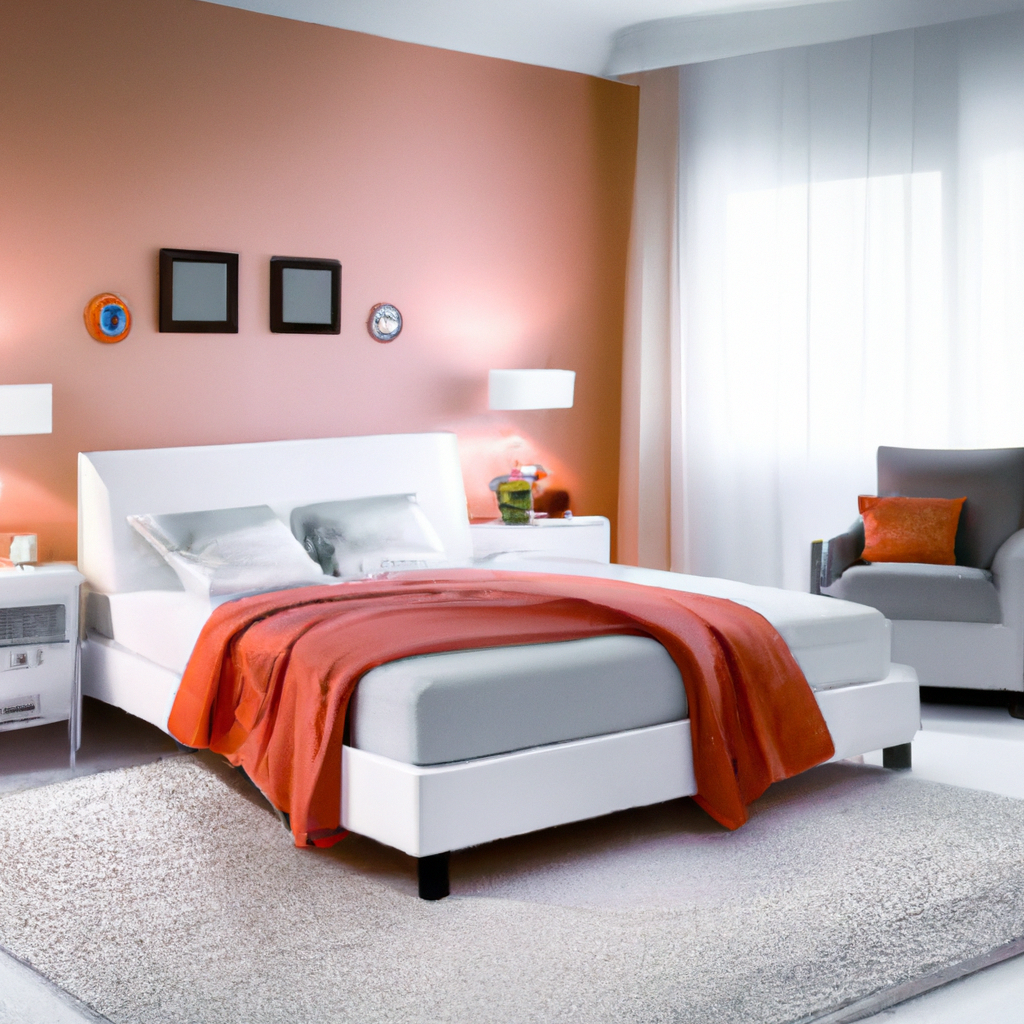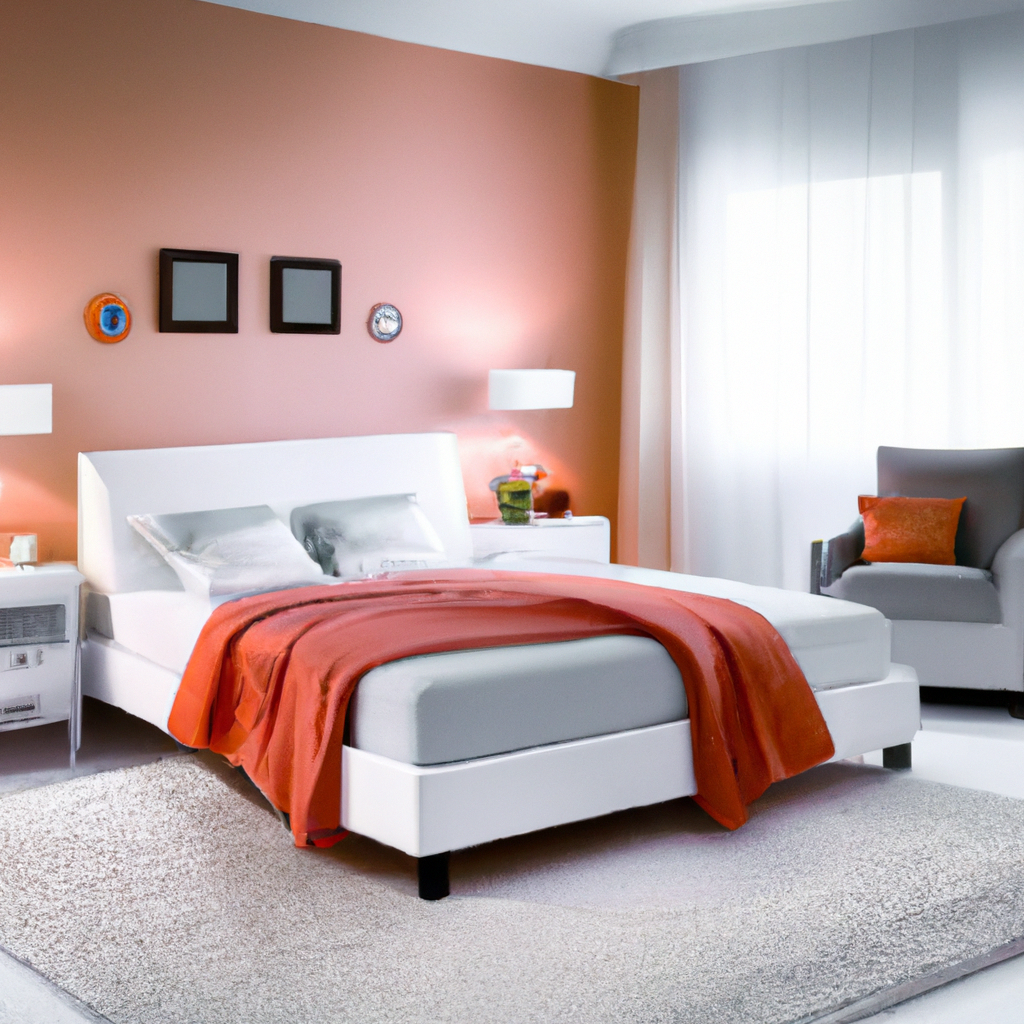Transform your bedroom into a haven of relaxation and tranquility with these simple tips for creating a smart bedroom that improves your sleep. From incorporating calming colors to optimizing lighting and temperature control, discover how thoughtfully designing your sleep space can have a profound impact on your sleep quality. Say goodbye to restless nights and hello to rejuvenating slumber in a soothing and serene environment that embraces the power of smart technology.
Tips for creating a smart bedroom that improves your sleep

Use smart lighting
When it comes to creating a smart bedroom that enhances your sleep quality, one of the first aspects to consider is smart lighting. Traditional bright and harsh lighting can disrupt your natural sleep-wake cycle and make it difficult to fall asleep. By incorporating smart lighting solutions, you can adjust the intensity and color temperature of the lights according to your needs. Soft warm lights in the evening can help signal to your body that it’s time to wind down and prepare for sleep. Moreover, using dimmers or smart bulbs that gradually fade out can mimic the natural sunset, promoting a sense of relaxation and readiness for sleep.
Optimize your mattress and bedding
Investing in a comfortable mattress and high-quality bedding can greatly contribute to improving your sleep. Everyone has different preferences when it comes to mattress firmness, so take the time to find the one that suits you best. Look for a mattress that provides adequate support for your body while also ensuring comfort. Additionally, consider choosing bedding made from breathable and hypoallergenic materials, as this can help regulate your body temperature and reduce the likelihood of allergies or skin irritations that can disrupt your sleep.

Control room temperature
Achieving the optimal room temperature is crucial for a good night’s sleep. The body naturally cools down during sleep, so it’s important to keep your bedroom cool, but not too cold. The ideal sleeping temperature for most people falls between 60 to 67 degrees Fahrenheit (15 to 19 degrees Celsius). To achieve and maintain this temperature, a smart thermostat can be a valuable addition to your smart bedroom setup. With remote control capabilities and the ability to set schedules, you can ensure your bedroom is at the perfect temperature when it’s time to sleep.
Minimize noise
Noise can be a significant barrier to a restful sleep. To create a serene environment in your smart bedroom, it’s essential to minimize noise as much as possible. Soundproofing your walls or investing in soundproof curtains can help reduce external noises from traffic or neighbors. Furthermore, consider using a white noise machine or a smart speaker with ambient noise capabilities. These devices can emit calming sounds such as rainfall or nature sounds, which can mask disruptive noises and create a soothing atmosphere conducive to sleep.

Create a calming color scheme
The colors in your bedroom can have a significant impact on your sleep quality and overall mood. Opting for a calming color scheme can create a peaceful and relaxing environment. Shades of blue, green, and neutral tones are often associated with tranquility and serenity. You can incorporate these colors through your walls, bedding, curtains, or even artwork. Avoid using bright or stimulating colors like red or vibrant orange, as they can promote alertness rather than relaxation when it’s time to sleep.
Incorporate natural elements
Bringing nature into your smart bedroom can have a profound effect on your sleep quality. Research suggests that exposure to natural elements can reduce stress, promote relaxation, and improve sleep. Consider adding indoor plants to your bedroom, as they can enhance air quality and create a visually pleasing atmosphere. Additionally, natural materials such as wood or bamboo can be incorporated into furniture or decor, giving your room an organic and calming vibe.

Reduce blue light exposure
Blue light emitted by electronic devices can disrupt your sleep-wake cycle by suppressing the production of the sleep hormone melatonin. To limit blue light exposure and promote better sleep, incorporate smart features such as blue light filters on your devices or use specialized smart lighting that reduces the amount of blue light emitted during the evening. Furthermore, it is advisable to establish a technology-free zone in your smart bedroom, keeping electronic devices out of reach to eliminate temptation and minimize potential sleep disturbances.
Manage electronic devices
Managing electronic devices in your smart bedroom plays a crucial role in optimizing your sleep environment. Create a designated charging station for your devices outside the bedroom to avoid the temptation of using them before bed or during the night. Establishing a routine of disconnecting from screens at least one hour before sleep can help signal to your body that it’s time to wind down. Additionally, some smart devices offer features that promote sleep, such as smart alarms that wake you up gradually with gentle sounds or light instead of jarring noises.

Establish a bedtime routine
Establishing a consistent bedtime routine is an essential habit to improve your sleep quality. Your routine should focus on relaxing activities that signal to your body it’s time for sleep. Consider incorporating activities such as reading a book, taking a warm bath, practicing mindfulness or meditation, or listening to calming music. A consistent routine enables your body to anticipate sleep and can help you unwind from the day’s stresses, ultimately promoting better sleep.
Consider aromatherapy
Aromatherapy can be a powerful tool in creating a sleep-friendly environment in your smart bedroom. Certain scents, such as lavender or chamomile, have been found to promote relaxation and improve sleep quality. Consider using essential oils or scented candles with calming fragrances as part of your bedtime routine. You can use a smart diffuser or timer-controlled aromatherapy devices to gradually release scents throughout the night. However, it’s important to ensure that the scents are not too overpowering, as strong fragrances may have the opposite effect and disrupt sleep.
Designing a smart bedroom that enhances your sleep quality requires thoughtful consideration of several key factors. Incorporating smart lighting, optimizing your mattress and bedding, controlling room temperature, minimizing noise, selecting a calming color scheme, incorporating natural elements, reducing blue light exposure, managing electronic devices, establishing a bedtime routine, and considering aromatherapy are all essential elements to create a sleep-friendly environment. By implementing these tips, you can transform your bedroom into a sanctuary for restful sleep, ultimately improving your overall well-being and quality of life.
